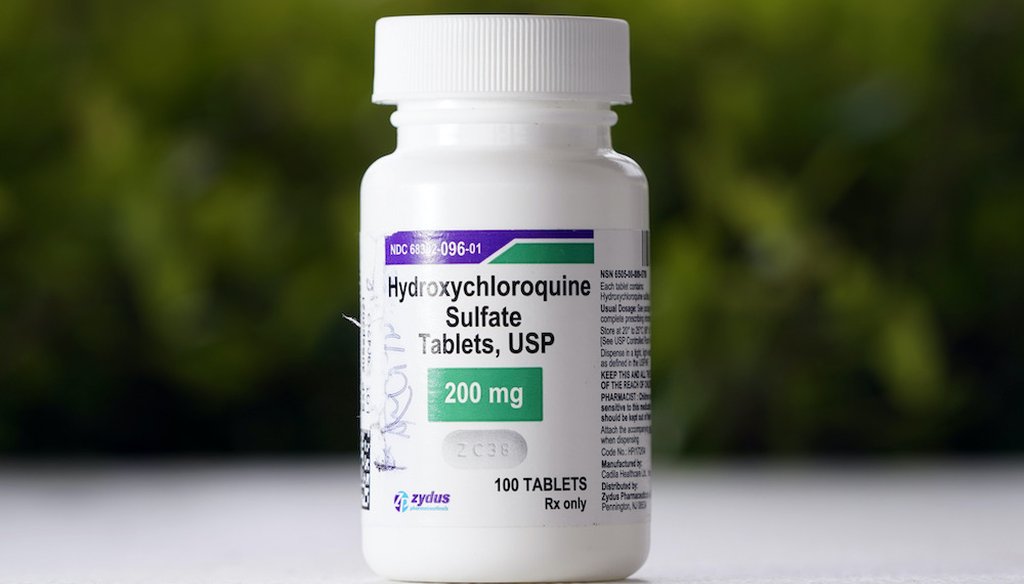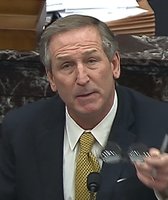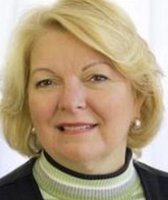Stand up for the facts!
Our only agenda is to publish the truth so you can be an informed participant in democracy.
We need your help.
I would like to contribute

A bottle of hydroxychloroquine. (AP Photo/David J. Phillip)
If Your Time is short
-
We don’t know yet if hydroxychloroquine or chloroquine help in the fight against the coronavirus. Limited studies so far show conflicting results.
-
Patients should only use them under a doctor’s orders and supervision.
-
Washington has allowed their use on a trial basis, while studies move forward.
The hunt for drugs to rein in the coronavirus is, like so much else in this crisis, filled with uncertainty. President Donald Trump sees great promise in a compound called hydroxychloroquine. That’s based on a couple of early trials in China and France that showed remarkable results after just a handful of days.
Some medical experts echo Trump’s enthusiasm, but many more do not. They say that the drug’s benefit is still unproven. Meanwhile, the government has welcomed the donation of 30 million doses to the Strategic National Stockpile.
Hydroxychloroquine, and its chemical cousin chloroquine, are well established drugs. Hydroxychloroquine is used to treat lupus and rheumatoid arthritis, while chloroquine helps with malaria. Both carry a particular risk for people with heart problems, plus other possible side effects.
Trump has said the drug should be used. "What have you got to lose?" he asked. The answer could be more complicated than meets the eye.
PolitiFact explored the science, risks, and government policy around hydroxychloroquine and chloroquine during the coronavirus outbreak. (We will update this story as necessary.)
Sign up for PolitiFact texts
Why medical experts worry about Trump touting chloroquine
Trump has touted chloroquine or hydroxychloroquine as a coronavirus cure in more than a half-dozen public events since March 19. Medical experts are more cautious, citing lack of definitive medical evidence, significant side effects, and the impacts on patients with lupus and other diseases who already use the drug.
Not long after Trump began touting chloroquine, an Arizona man died and his wife was hospitalized after they ingested a fish-tank solvent that includes chloroquine phosphate. A few days later, the CDC released a warning, not just against using the fish-tank cleaner but also the drug chloroquine and its variants without a doctor’s orders.
In a statement to PolitiFact, the American Medical Association seconded such concerns, saying it "strongly opposes" prescribing chloroquine as a preventive measure and also opposes pharmacies and hospitals "purchasing excessive amounts" of the medication.
"Even if prescribed by a physician, I am not convinced that patients are being adequately screened or monitored for some of the more serious side effects, like cardiotoxicity," Joel F. Farley, associate head of the department of pharmaceutical care and health systems at the University of Minnesota College of Pharmacy
In the meantime, focusing on one potential treatment could overshadow the nitty-gritty things Americans need to do on a daily basis to stay safe.
"My biggest concern is that people will believe there’s some magic cure and not follow social distancing and other normal precautions in the belief that there’s a drug to ‘fix this,’" said Ally Dering-Anderson, a clinical associate professor at the University of Nebraska College of Pharmacy.
Read more in this story.
Does it work? Studies paint a mixed picture
The interest in hydroxychloroquine comes from two small trials that suggested it helped a lot. One came from Wuhan in China and the other from Marseilles, France. The problem is, in two other trials, again from China and France, other researchers couldn’t replicate the first results.
The first promising Chinese study said fevers and coughing fell within five days for a test group of about 30 patients. The Marseilles study used hydroxychloroquine along with the drug azithromycin on 80 patients and reported that the virus was essentially gone in five days. The research society that published the French article later renounced it, saying it didn’t meet its standards.
But when doctors in Shanghai gave the same drug in the same doses to 15 COVID-19 patients, they found they were no more likely to rid the virus from their bodies than patients who had not received the hydroxychloroquine.
Doctors in Paris confronted the same puzzle. They mimicked the Marseilles drug protocol with a group of 10 patients, and 80% still had the virus six days after treatment.
It is possible that the earliest trials happened to pick people who were not badly hit by the virus, or that the follow-on trials happened to pick people who had a harder time fighting the disease. For now, the jury is out. Worldwide, over 50 studies are in the pipeline, exploring whether hydroxychloroquine is an effective treatment, or alternatively, provides protection against catching the disease in the first place.
You can learn more here.
FDA lets hospitals prescribe chloroquine, hydroxychloroquine
Health care providers are allowed to prescribe chloroquine and hydroxychloroquine to treat COVID-19 patients. But they must meet certain requirements set by the Food and Drug Administration.
While there are officially no FDA-approved drugs to treat or prevent COVID-19, on March 28, the agency signed an emergency authorization for the use of chloroquine and hydroxychloroquine to treat patients hospitalized with COVID-19.
According to the FDA’s order, the drug must come from the National Strategic Stockpile and be prescribed by a licensed health care provider. Additionally, the drug can be used only to treat adult and adolescent patients who are hospitalized with COVID-19 and weigh more than 110 pounds.
Emergency-use authorizations are the FDA’s way of suspending its rules regarding a certain drug. They are aimed specifically at products that can help "diagnose, treat, or prevent serious or life-threatening diseases or conditions." The agency issued several similar authorizations during the 2014 Ebola epidemic.
The FDA left it up to states to decide whether they want to request chloroquine or hydroxychloroquine from the federal government, which ships the drugs through the Federal Emergency Management Administration. New York state, for example, had acquired more than 800,000 doses of the drugs as of March 22. Michigan has also requested chloroquine.
States restrict access to chloroquine
Several states have moved to restrict access to chloroquine given how little scientists know about how it affects the coronavirus, as well the potential for stockpiling the drug.
New York Gov. Andrew Cuomo signed an executive order restricting the prescription of chloroquine except when prescribed for an FDA-approved indication, or as part of a state-approved clinical trial related to COVID-19. On March 27, he amended those rules to allow health care providers to prescribe the drug for patients in hospitals and emergency rooms.
That’s similar to the approach of other states.
In Nevada, Gov. Steve Sisolak signed an emergency regulation that safeguards the supply of chloroquine. The order prohibits doctors in outpatient settings from prescribing and dispensing the drugs for COVID-19 treatment. It also limits prescriptions to 30-day supplies.
As several news outlets have reported, some physicians around the country have started to prescribe themselves chloroquine in order to hoard it for their families. That hoarding has led to drug shortages in some parts of the country, affecting patients who take chloroquine regularly to treat conditions like lupus and arthritis.
Michigan has also moved to prevent people from stockpiling chloroquine, though it has not taken regulatory action like New York and Nevada.
The state Department of Licensing and Regulatory Affairs sent a letter to health care providers saying it had received "multiple allegations of Michigan physicians inappropriately prescribing hydroxychloroquine or chloroquine to themselves, family, friends, and/or coworkers without a legitimate medical purpose."
In a follow-up statement days later, the department said the purpose of the correspondence was "to remind both prescribers and dispensers of their continued obligation to adhere to the standards of practice." On March 31, the state shifted course, requesting chloroquine and hydroxychloroquine from the Strategic National Stockpile based on the FDA emergency use authorization.
According to the National Academy for State Health Policy, as of March 27, Ohio, Idaho, Kentucky, North Carolina and Texas had restricted access to chloroquine and hydroxychloroquine. Louisiana, Kansas and Missouri had issued recommendations for prescribing the drugs.
Our Sources
See links in article






























